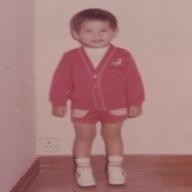由於我所發問的問題眾多,故需知識會員不嫌棄分數的高低,為發問者解答!感謝萬分!
請各知識會員在詳細回答後,並定期檢查發問者的問題能否得到解答,若未能得到適當解答,及後附上補答! Thank you so much !! 不勝感激!
1. 請問passive voice中的句子幾時轉pronoun呢?有冇咩竅門?
其實係咪在passive voice中的句子by後面要轉pronoun,而passive voice 中的subject連埋有pronoun就不用轉? (轉pronoun是否適用於passive voice 的任何tense?)
以下不用逐一解釋,可以在句子中找出相同處,從而深入解釋:
Eg1:Was Julian carrying these boxes when you saw him? (Active)
Were these boxes being carried by Julian when you saw him? (Passive)
Eg2:My aunt is looking after me while my parents are working in Beijing. (Active)
I am being looked after by my aunt while my parents are working in Beijing.(Passive)
Eg1:Have they fixed your laptop yet? (Active)
Have your laptop been fixed by them yet? (Passive)
Eg2:When I arrived,they had already eaten all the food. (Active)
When I arrived,all the food had already been eaten by them. (Passive)
2. Active和Passive的用法分別?如何理解句子選用的tense和active/passive?為何有以下句子doer還用passive voice,定係我誤會了?應如何分辨passive voice的present/past perfect, present/past continuous tense and simple future tense ?
逐一解釋用以下句子的句子所用的tense和active/passive:
Eg1:Mrs.Lee employed(employ) Jenny to look after the baby two weeks ago.
Eg2:The boy was caught(catch)shoplifting while he was shopping in the store yesterday afternoon.
Eg3:Watch out!The gate is being painted now,so don't go near it!
Passive voice 急求有心解答問題的知識會員~
2010-02-28 1:42 am
回答 (2)
2010-03-02 10:07 am
✔ 最佳答案
其實係我既角度就好易,睇下幫唔幫到你。1被動式公式係be+p.p(past participle)這是被動式的主要公式。識左佢就搞定,冇你所講的那麼複雜。
2你唔通曉所有tense既,轉起被動式,比較有問題,但又不是很大的問題。
3通常主動句轉被動式,轉親都係非問句。問句的那些要後期少少才學。分開學它們。
開始講,被動式,係人都知subject同object 會互換吧﹗你唔識根本教不到你。
所有tense既主動式轉去被動式
現在式.steal>>is/am/are+ stolen
過去式stealen>>was/were+ stolen
現在完成式has/have+finished>> has/have (been finished)呢度就係be+ pp
現在完成進行式has/have+ been waiting>> has/have(being waited)呢度就係be+ pp
現在進行式is/am/are+ shouting>>> is/am/are (being shouted)又係be+ pp
將來式will do>>will be done
過去式同現在式好相似。
就係一條公式打天下,都唔係咁難,如果唔明都幫不了你。
Eg1:Mrs.Lee employed(employ) Jenny to look after the baby two weeks ago.
>>jenny was employed mrs.lee to look after the baby two weeks ago.
Eg2:The boy was caught(catch)shoplifting while he was shopping in the store yesterday afternoon.
>>the shop keeper caught the boy shoplifting while.......(不太肯定)
Eg3:Watch out!The gate is being painted now,so don't go near it!
>>wathc out!. the worker is painting the gate now,so...
全部都係subject同object 互換,再用翻我講既公式be+pp
由於部份 沒有by的部份,都要估翻出來。
就係一條公式打天下,都唔係咁難,如果唔明都幫不了你。
2010-03-02 12:24:11 補充:
係唔係被動句,好簡單就係睇be+pp.
有就係被動,冇就係主動。
tense總共有12個,加埋被動時態有24個不同的格式。
因此從結構可以看得出被動或主動。
另外亦可以推理到的
死物通常係被動式.亦可以分式到。
2010-03-05 01:18:20 補充:
現在先知你問咩.思維上問題
The boy was caught(catch)shoplifting while he was shopping in the store yesterday afternoon.為何答案是was caught,而不是caught呢?有時不一定有by這字
shopliffting係解店舖盜竊
2010-03-05 01:18:39 補充:
因為果個男子被(店員)捉,所以用pv.不可能用av.
你睇埋呢個例子
my wallet is stolen.我的荷包被偷。不可能my wallet stolen。大部份死物都不可以係doer.
但當doer同被doer果個都係人,兩者都可以係doer同被doer.睇你想點
i hit you.我打你.i am hit 我被打. you are hit.你被打. you hit me 你打我
2010-03-05 01:25:30 補充:
另外,講個by.
by點解有時有,有時冇,係因為,doer並不重要.又或者唔想講.可寫也可不寫.
我個荷包被偷.個花瓶被打爛。,也可講成我個荷包被賊偷.也可講成個花瓶被peter打爛.
由你喜歡。
my wallet is stolen by peter. the vast is broken by peter.
2010-03-05 01:26:54 補充:
諗多d你就會明。不好太死。
2010-03-05 01:32:33 補充:
i hit you, i am hit.
i 可以係doer也可以係被doer果個.
當你睇到句子係主動句.咁i就係doer.
相反,當你睇到句子係被動句.咁i 就係被打果個。
但當subject不是生物而是死物。死物一定不是doer
wallet is stolen.對
wallet stolen錯,不可能主動。
當兩者都係生物用主動又得,被動又得。
死物則不能。
2010-03-09 00:47:50 補充:
我諗你諗多一點,慢慢就會明,以前我都係咁,都係後期諗翻以前學既,慢慢地明。
不用急於即時的明白。
就如現在完成進行式,書中解釋係完成既動作而且在將來仍會進行。書解釋係冇錯,但不能令人明白。現在完成進行式其實係用在特定的情況,當我地想講這特定情況,就是要用這種tense.
2010-03-09 00:50:47 補充:
你諗下用中文講,我被把間尺打到。呢度都有個被字啦。
當中文意思有個被字,英文理應用上被動式。中文的被字=英文被動式要用的時候。
當然不是所有死物都用上被動式例如水,太陽。water boils at 100 C. sun rises at east.
2010-03-09 00:54:57 補充:
在passive voice中,怎樣俱分是咩tense??
這個問題,我己經係第一次回答己列出來了。
你的問題是甚麼?
你係米想問點分pv同av?
只要句字中有be + p.p, 就係被動式了。
be包括 is,am, are, were, was,
pp就係一個過去分詞的動詞
2010-03-09 00:56:02 補充:
不如你用d時間消化下,有時d野急不來。
參考: 真的是很白痴我竟這麼用心。
2010-02-28 3:05 pm
1. 我相信你的問題問錯了,因為I/you/he/...和me/you/him/...都是pronouns(代名詞),而它們的型態會跟用法而改變。
subject forms: I, you, he, she, it, we, you, they
object forms: me, you, him, her, it, us, you, them
reflexive forms: myself, yourself, himself, herself, itself, ourselves, yourselves, themselves
John loves Mary. (John = subject, Mary = object)
He loves her. (而非 He loves she, 或 Him loves she.)
Mary loves John too. (Mary = subject, John = object)
She loves him. (而非 She loves he, 或 Her loves him.)
由active voice轉passive voice時,主語變成賓語(或被省略),而賓語則變成主語。
John loves Mary. Mary is loved (by John).
He loves her. She is loved (by him).
Mary loves John. John is loved (by Mary).
She loves him. He is loved (by her).
若主語跟賓語都是同一個人時,賓語就要用reflexive form。
John loves himself. He loves himself.
Mary loves herself. She loves herself.
2. Passive voice 中一定要有個to be,然後接上past participle。
Mrs Lee employed (employed = to employ/simple past tense) Jenny...
The boy was caught... (was = to be/simple past tense + caught)
The gate is painted... (is = to be/simple present + painted)
The gate is being painted... (is being = to be/present continuous + painted)
The gate has been painted... (has been = to be/present perfect + painted)
The gate will be painted... (will be = to be/future + painted)
By the time you return from work, the gate will have been painted.
(will have been = to be/future perfect + painted)
subject forms: I, you, he, she, it, we, you, they
object forms: me, you, him, her, it, us, you, them
reflexive forms: myself, yourself, himself, herself, itself, ourselves, yourselves, themselves
John loves Mary. (John = subject, Mary = object)
He loves her. (而非 He loves she, 或 Him loves she.)
Mary loves John too. (Mary = subject, John = object)
She loves him. (而非 She loves he, 或 Her loves him.)
由active voice轉passive voice時,主語變成賓語(或被省略),而賓語則變成主語。
John loves Mary. Mary is loved (by John).
He loves her. She is loved (by him).
Mary loves John. John is loved (by Mary).
She loves him. He is loved (by her).
若主語跟賓語都是同一個人時,賓語就要用reflexive form。
John loves himself. He loves himself.
Mary loves herself. She loves herself.
2. Passive voice 中一定要有個to be,然後接上past participle。
Mrs Lee employed (employed = to employ/simple past tense) Jenny...
The boy was caught... (was = to be/simple past tense + caught)
The gate is painted... (is = to be/simple present + painted)
The gate is being painted... (is being = to be/present continuous + painted)
The gate has been painted... (has been = to be/present perfect + painted)
The gate will be painted... (will be = to be/future + painted)
By the time you return from work, the gate will have been painted.
(will have been = to be/future perfect + painted)
收錄日期: 2021-04-13 17:08:10
原文連結 [永久失效]:
https://hk.answers.yahoo.com/question/index?qid=20100227000051KK01187


